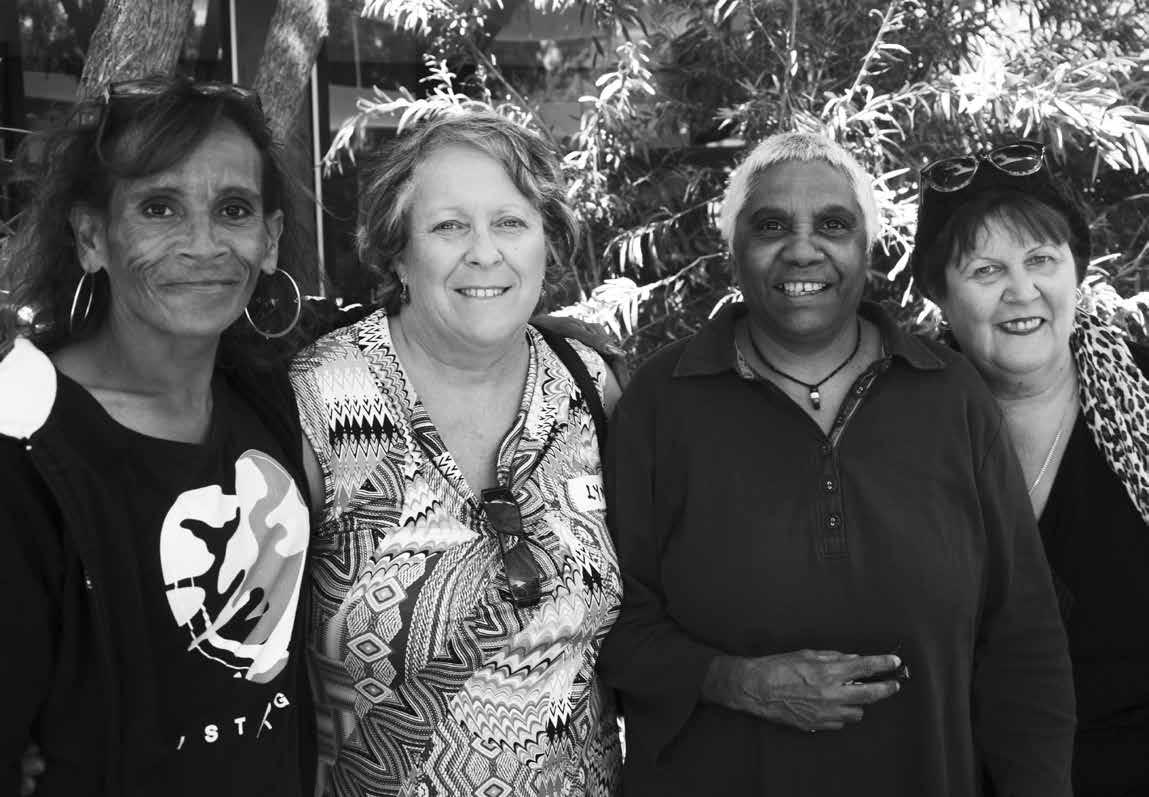
11 minute read
New group to give voice to Stolen Generations in South Australia
Stolen Generations Reparation Fund commences work and faces questions
Independent Assessor John Hill has begun work on implementing the Stolen Generations Reparation Fund. The $11 million fund was announced by the South Australian Government in November 2015, following many years of debate in Parliament. The fund will make payments to Aboriginal people who were removed from their families, bypassing the need for litigation to settle compensation. Ex-Labour Government Minister John Hill attended the Stolen Generations Alliance meeting at Tauondi College in Port Adelaide on 5 February to set out the process for community members. The scheme commences on 31 March and from that date people who believe they fit the category will have 12 months to apply for compensation up to $50,000. The scheme will close two years after applications open. According to SA Native Title Services Board Deputy Chair Lavene Ngatokorua, who attended the meeting, the Independent Assessor and his staff would hear individual’s stories and then decide on compensation. “He would go and listen to stories and figure out how much that person is worth in terms of repatriation. They’re going to employ an Aboriginal person, a woman, in a position to hear the stories of victims,” she explained. The Scheme only includes compensation for people directly affected by past policies of removal. “What I also heard, it’s got to be for the victims, not for their families. And that caused a lot of murmur among the people that attended, because a lot of them are second generation, not first,” Ms Ngatokorua said. “I also have some concerns” she said. “He could never walk in our shoes and he could never understand where we come from. He can try all we like, but when we look at the social, the structure, then how can you make a call on somebody without understanding where they’ve really come from. And yet he’s going to make that call.” Ms Ngatokorua also expressed concern about people being asked to tell their stories again. “When I think that you have people’s stories – you’ve got your Link Ups, you’ve got other places where people have told their story. You’ve got the Mulligan report. If you’ve already told your stories, wouldn’t it be good just to get those. To tell them again is traumatising, reliving the trauma.” The Stolen Generations Reparation Fund was also discussed by the CEO of Anglicare, Reverend Peter Sandeman at the National Apology Breakfast at the Adelaide Entertainment Centre on 12 February. He said that “this redress has broadly been received well – providing a sense of justice and recognition. It has been a long time coming.” However he pointed out that the delay in establishing such a scheme has meant that many people who were stolen have since passed. “Sadly, many Stolen Generations passed away before this Scheme was announced – they passed waiting for this moment in time – but it was never to be achieved in their lifetime. And, tragically, heartbreakingly, some have passed since the announcement in late November 2015.”
Advertisement
Mr Sandeman asked the government to re-consider the Fund’s timeline, which currently would mean that no payment would be received until after the closing date and after all applications have been assessed, which could take up to two years. “Forced Removal policies spanned several generations, with some Stolen Generations Survivors being in their 40s through to their 90s,” he pointed out “For Government, it would seem both just and logical that the elderly, the sick, the frail be triaged to in this process to ensure that they receive their long-awaited and deserved individual reparation – in their lifetime,” Mr Sandeman told the Apology Breakfast audience.
New group to give voice to Stolen Generations in South Australia
An independent organisation dedicated to advancing the interests of the Stolen Generations and their families has been established in South Australia. Vicki-Lee Knowles from the South Australian Stolen Generations Working Party said that the new organisation is needed because for far too often the Stolen Generations of South Australia have been excluded from direct consultations about community matters that have an impact on their, and their families, lives.
“Stolen Generations of South Australia have been calling for a statewide Stolen Generations body to be established to progress the collective interests of Stolen Generations and to be an accountability mechanism for the implementation of the 54 recommendations of the Bringing Them Home report,” said Ms Knowles.
“We need a strong and united voice if we are to affect change for our Stolen Generations who are now old or frail,” she said.
The South Australian Stolen Generations Working Party met at Tauondi College in Port Adelaide on 5 February and discussed the establishment of the new South Australian Stolen Generations Aboriginal Corporation (pictured). The new Corporation’s Rule Book, including its Vision Statement and Objectives, has been finalised and was submitted to the Office of the Registrar of Indigenous Corporations (ORIC) for the new group to become a reality. ORIC accepted the corporations Rule Book and so the group achieved formal incorporation on 17 March 2016.
According to the Rule Book, the aim of the SA Stolen Generations Aboriginal Corporation is to: “In the spirit of truth, justice and healing provide a strong united voice of Stolen Generations, our descendants, families, and communities who were removed from, or permanently reside in, South Australia.”
Membership of the new body is open to any Aboriginal person who was fostered, adopted or institutionalised as a result of removal policies across South Australia or members of Stolen Generations who now live permanently in South Australia. Descendants of members of the Stolen Generations are also eligible to become members.
Non-voting membership is also open to Aboriginal people or organisations who support the aims of the association.
Above: Attendess at Stolen Generations Working Party Meeting 5 February 2016. Left to right: Janette Milera, Lyn Jones, Lily Disher, Audra Landers.
Reflecting on the Eighth Anniversar y of the National Apology
The eighth anniversary of Prime Minister Kevin Rudd’s apology to members of the Stolen Generations was celebrated across the country on 13 February through song, stories and community gatherings. In Adelaide, 1600 people attended an Apology Day breakfast hosted by Reconciliation SA at the Adelaide Convention Centre. The event included performances by Aboriginal performers Archie Roach, Nancy Bates, Ellie Lovegrove and the Dusty Feet Mob. Barkinji woman and Adelaide singer Nancy Bates performed her original songs for the Breakfast and supported Archie Roach in his performance. Ms Bates opened the morning with her original song “Old Black Woman”. It’s a song that comes directly from her own experiences and connection with the Stolen Generations.
“Old Black Woman is a song that comes from a very deep place, a very deep narrative from within the Aboriginal community,” Nancy Bates said.
“I did write it when I was working at Link Up, helping members of the Stolen Generations and their descendants to find their way home, so retrieving records and finding out information that can help people link back to their communities and families,” she explained. Ms Bates wrote the song following the funeral of a prominent elder in South Australia, Aunty Veronica Brody.
“I went home feeling quite heavy hearted and feeling loaded up with stories of Stolen Generations, I just picked up the guitar on that afternoon because I’d been watching our elders together at the funeral and I knew a lot of their stories. The words just began to flow on a page and I think the song was written within twenty minutes to half an hour. I really do believe when songs come to you in that way that it’s really meant to be. When you don’t have to struggle to write a song, it’s just waiting to be kind of realised.” Nancy Bates says that the song gets a very strong reaction from listeners whenever she plays it live.
“Lots of tears, I think it brings up a lot of pain for a lot of our elders in particular. But I hope it also gives them a sense of pride and also an understanding that we as the younger generation are completely there for them, and we feel their stories on a very deep level. I hope they feel I’ve respected their stories in the story telling and I hope that it also makes them, with Old Black Woman I also try to capture the strength and the resilience of our Stolen Generations and I hope that they feel that as well,” she said.
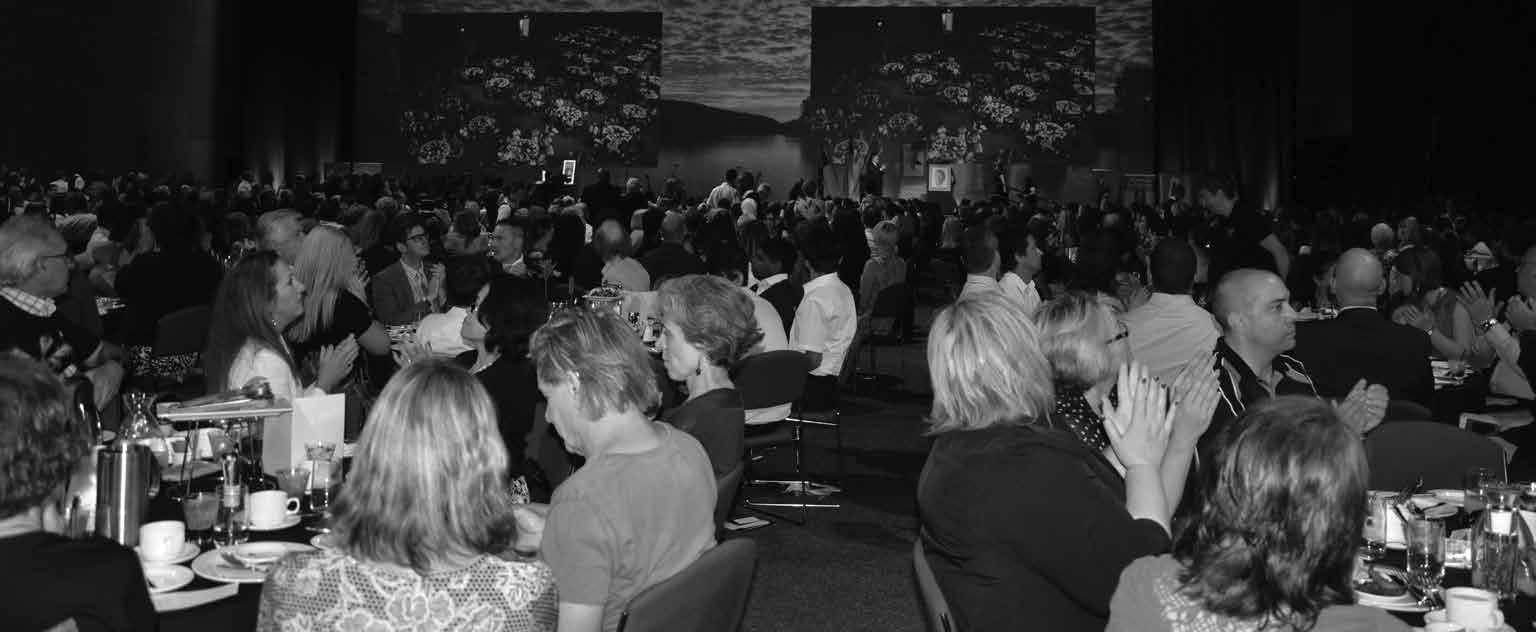
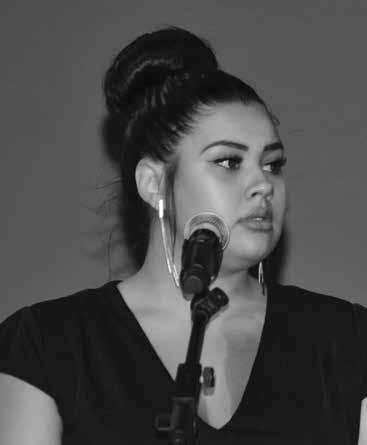
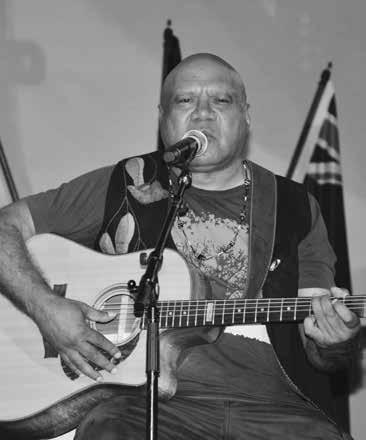
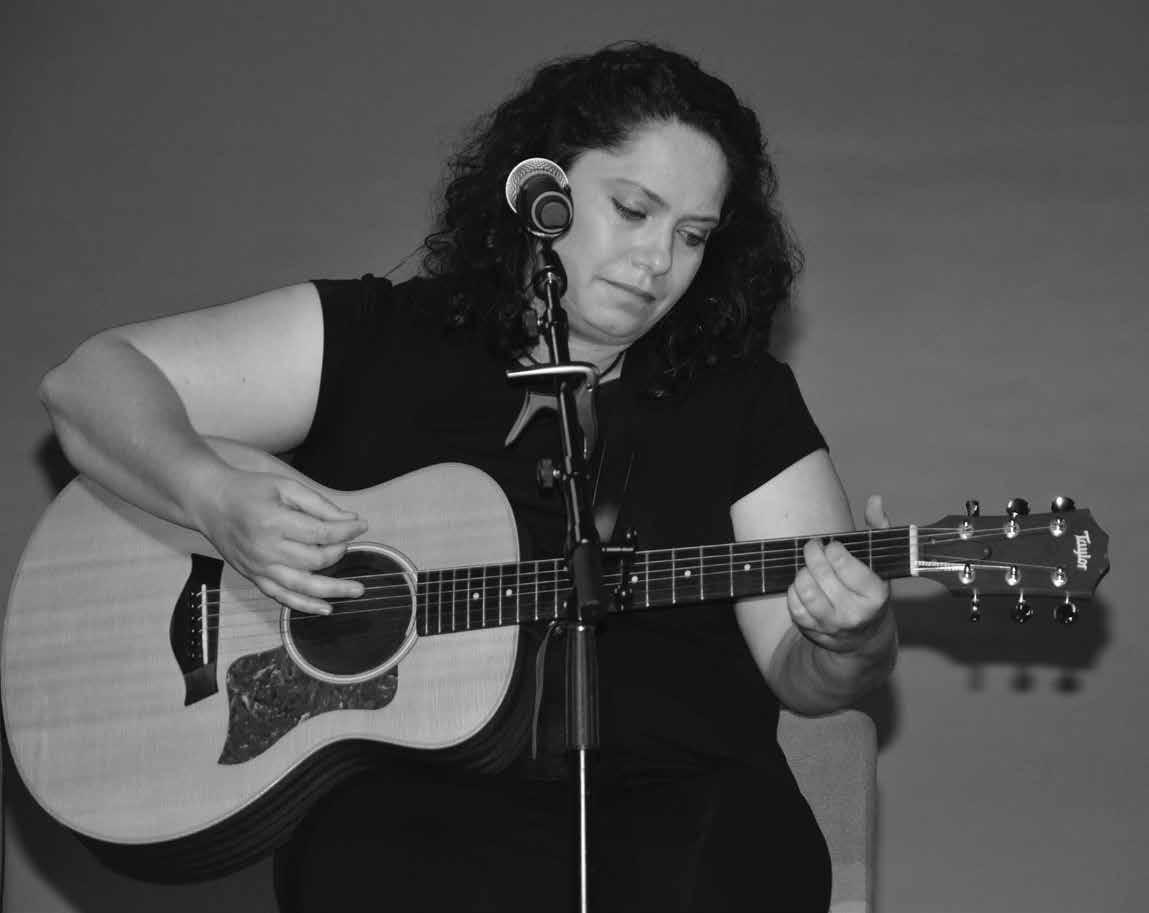
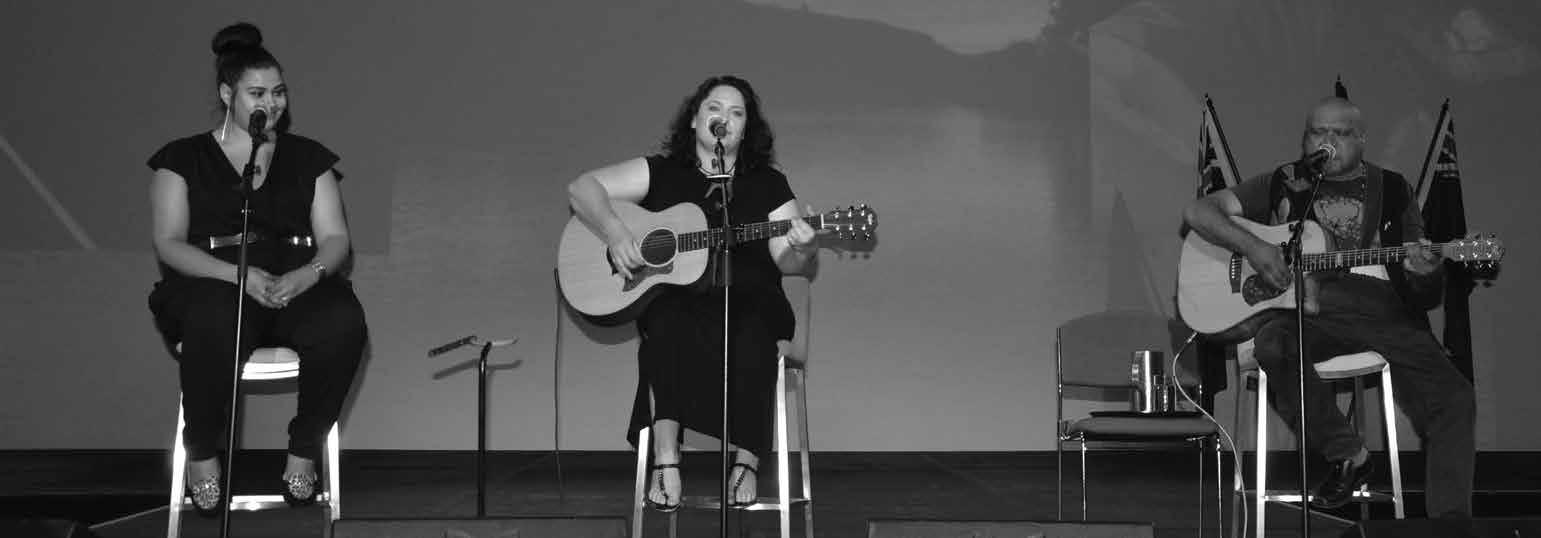
Archie Roach played three songs at the Breakfast event, starting with “A Child was Born Here”, which reflects on the sacredness of connection to country, and “Down City Streets”, which drew Archie Roach to reflect on his days as a young homeless man and the time when he met his late wife Ruby Hunter. “Archie and Ruby had met in Adelaide, so any time Archie does a gig in Adelaide, it’s really profound for him, lots of memories come flooding back, this was the place he fell in love with Auntie Ruby, an iconic relationship,” Nancy Bates said following the event. Archie Roach’s powerful and well known song “Took the Children Away” was the closing piece for the morning. Archie Roach was joined on stage by the Dusty Feet Mob, a group of young people from Port Augusta, who accompanied him with their own interpretation of the song. Nancy explained the impact of the song on that morning. “Took the Children Away was so incredible because, our young people who had interpreted it in such a powerful way. In rehearsal it was very telling when Uncle Archie broke down seeing the children perform during our rehearsal, because the way they had interpreted it really interpreted the sense the younger generation and the way they are able to process what has happened to their elders, understand what it means to them in a contemporary setting and to feel it on a very deep level. And so I think what was very clear on that day is that the intergenerational process, processing of history and stories is very real for our young people, and there’s a trauma attached to that for our young people, to know what’s happened to our previous generations, and to know that that affects a number of children today, of children in care, Aboriginal children in care today is completely related to those past policies that saw the separation of so many children from families. So I think that was what was so powerful, this interpretation of Took the Children Away, by children, Aboriginal children.” The large audience at the Apology Breakfast in Adelaide clearly felt the power of the performance. “And from what I could see up on the stage, there was hardly a dry eye in the room. Everybody felt the significance of these children joined with Uncle Archie really expressing what that song meant to them on a very real, deep level. I’ve spoken to people since the Breakfast and they are saying it’s one of the most profound events they’ve ever been to, it will never leave them and a large part that was the collaboration between the children and Uncle Archie. At the end there was an amazing moment when Archie embraced all of the children and that was I think that was a really special moment to witness and it says everything about who Uncle Archie is, it really does.” The Breakfast was followed by a community barbeque, a community event held for the Survivors of the Stolen Generations and their families and supporters in the Veale Gardens. The event was coordinated by a coalition of community organisations, headed by Relationships Australia SA (RASA). The event included a smoking ceremony, traditional food, live entertainment and a focus on healing and well-being.
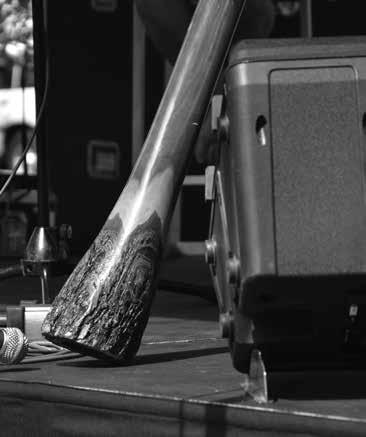
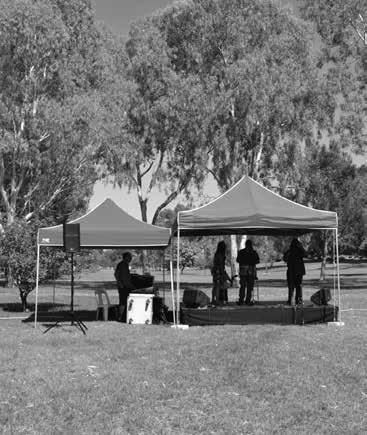
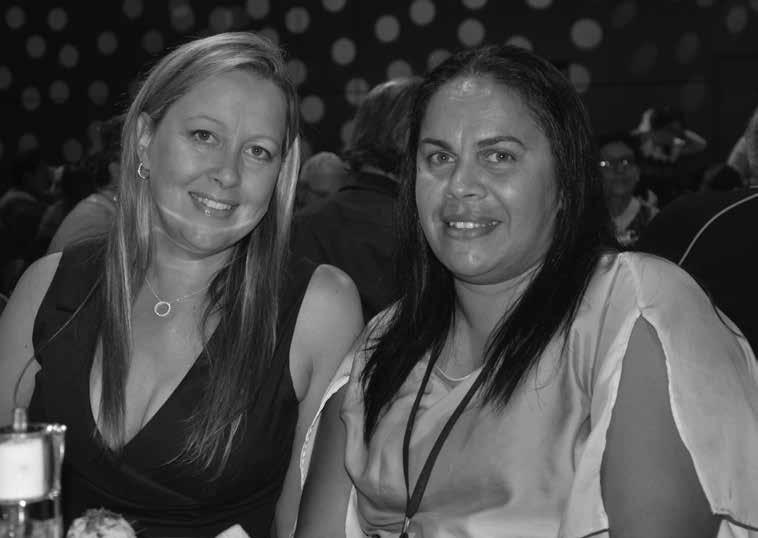
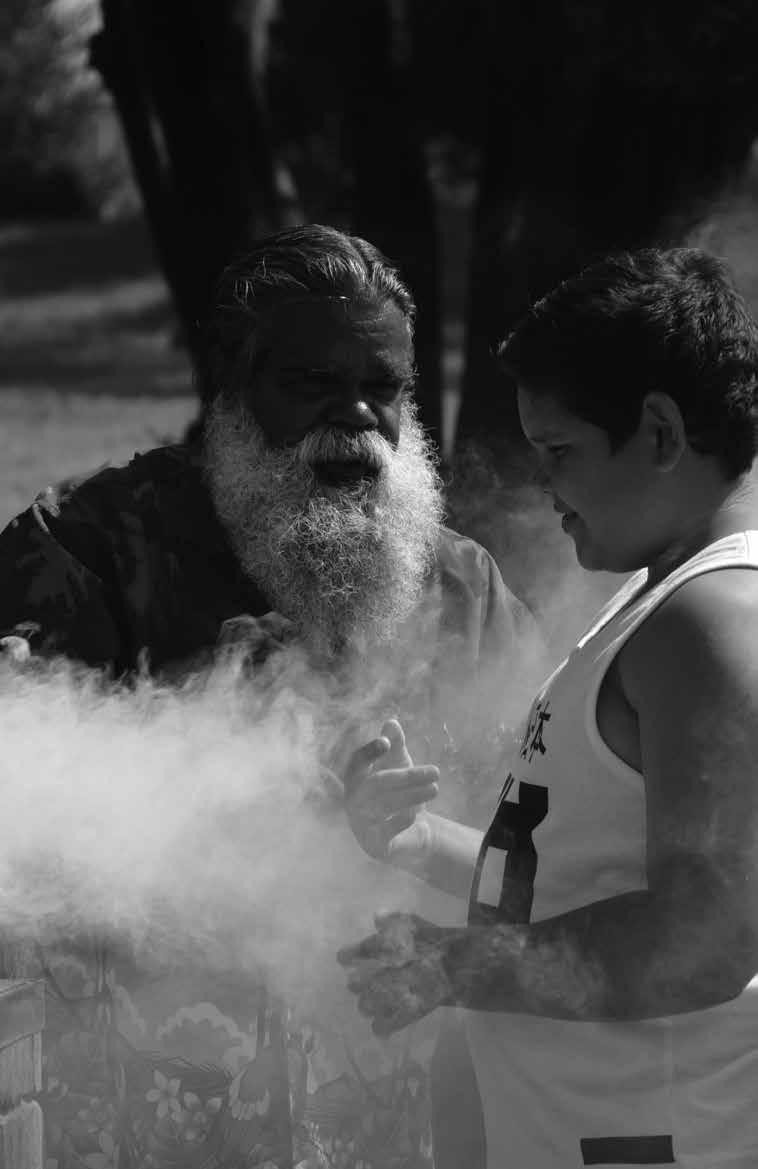
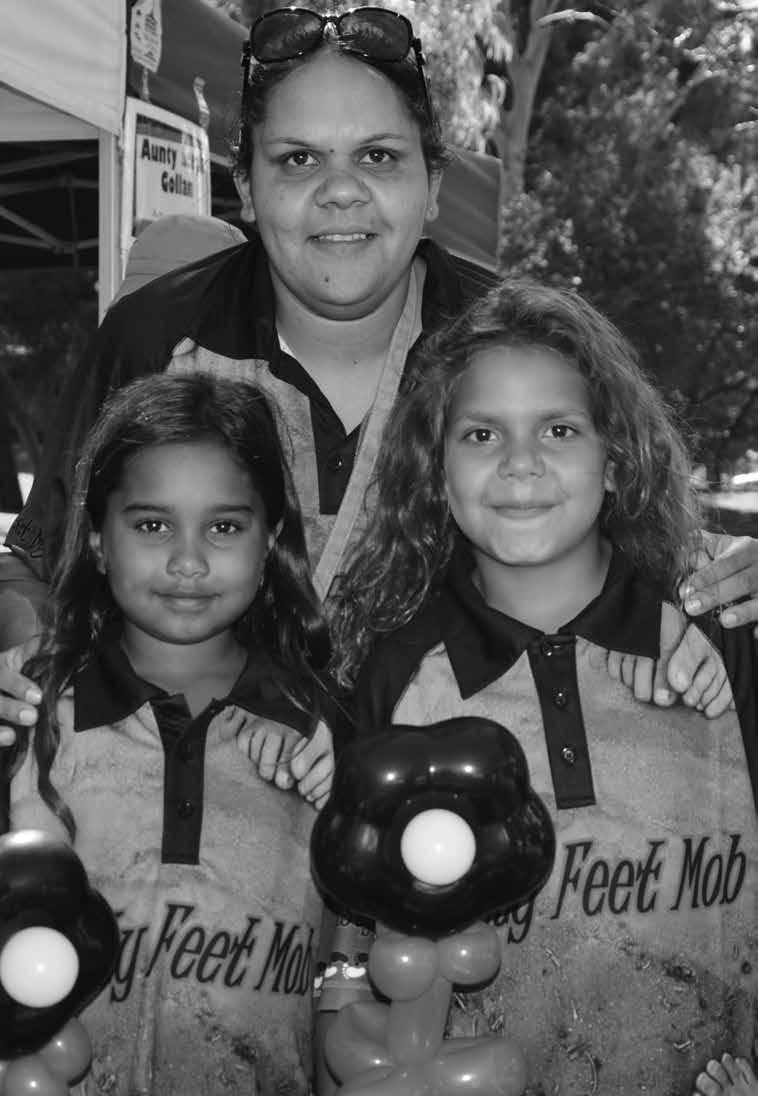
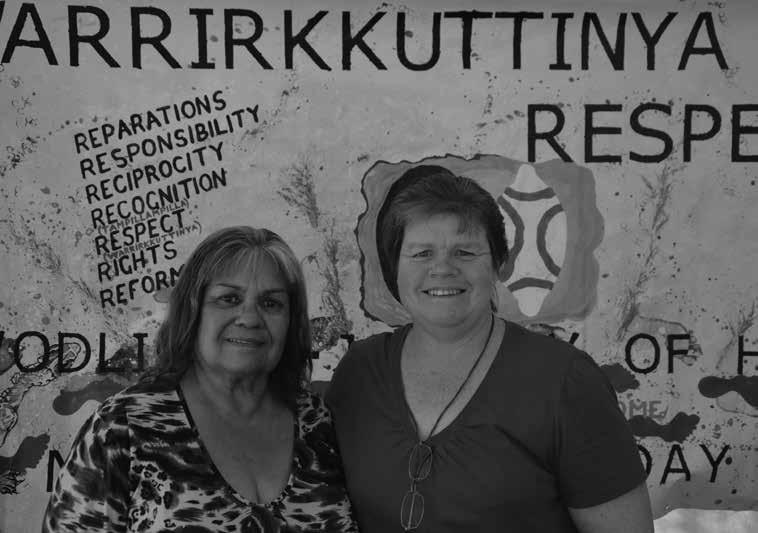
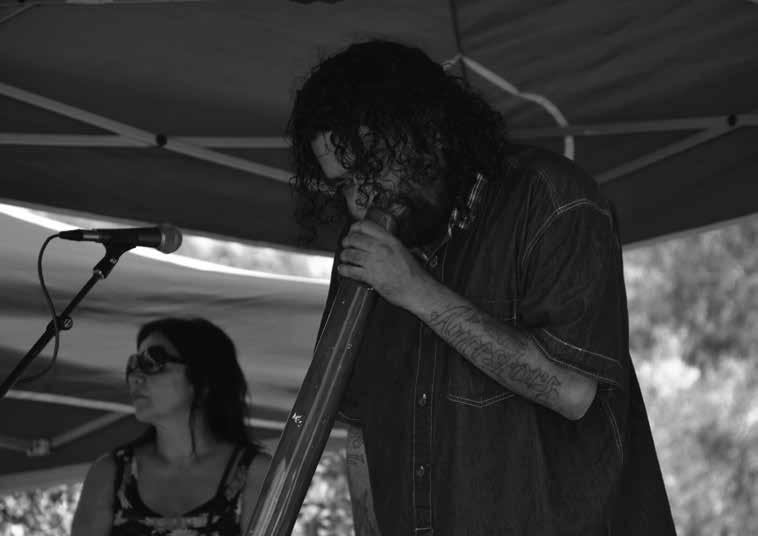
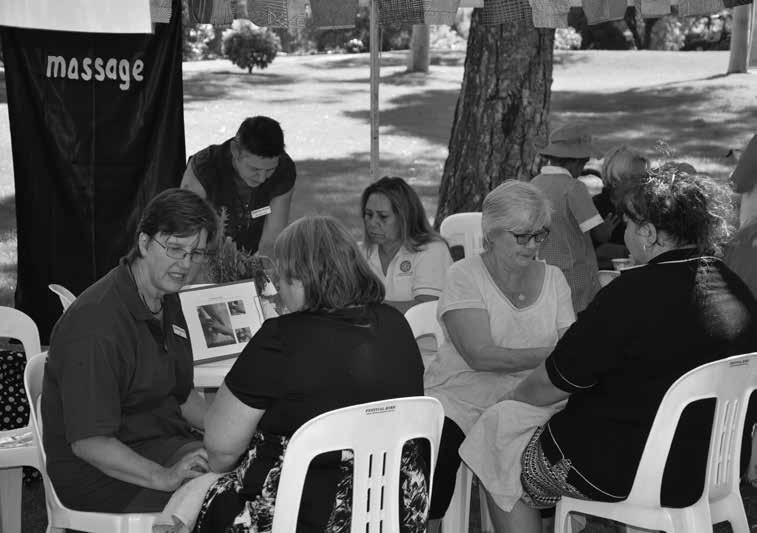
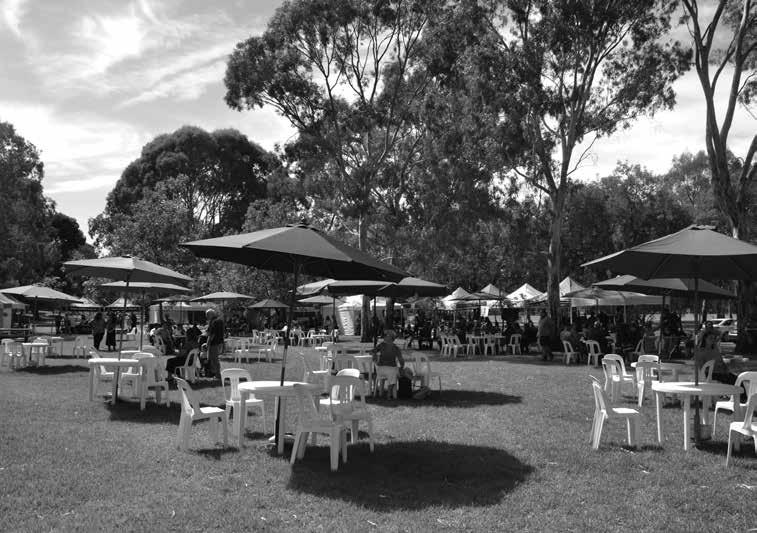
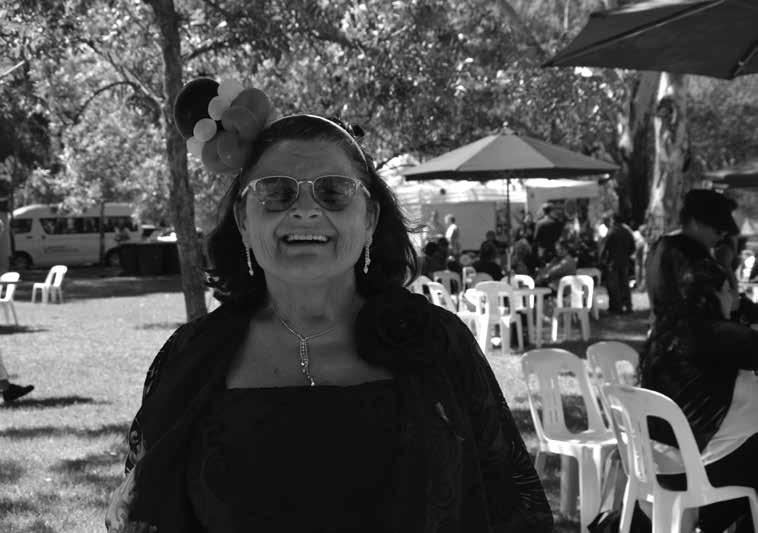
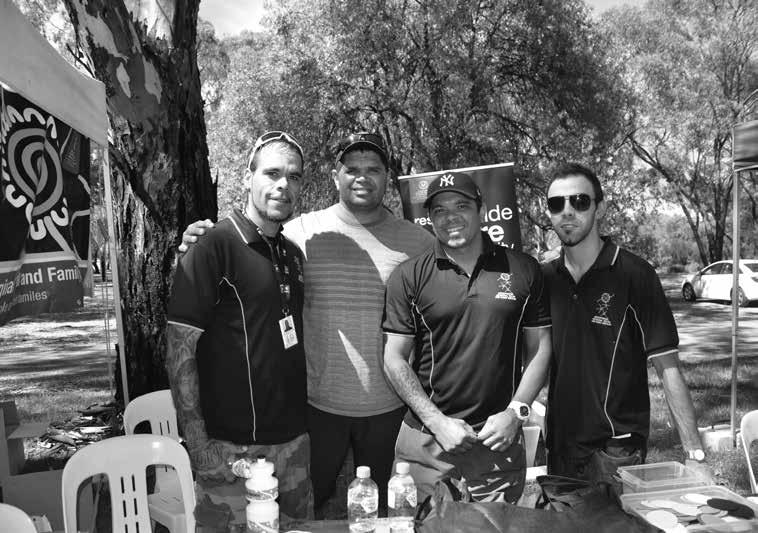
Opposite page, from top, left to right: Ellie Lovegrove, Nancy Bates and Archie Roach; SANTS staff Nicole Clark and Jodie Martin; Stephen Gadlabarti Goldsmith and Tyrone Rankine; Community event at Veale Gardens. This page, from top: Rebecca Tenner, Sasha Taylor and Layla Buckskin (Dusty Feet Dance Mob); Didgeridoo Player Jamie Goldsmith at Community BBQ; Massage stall; Aunty Irene and Wendy McKell; Veale Gardens; Anne Peterson; Robin Davey, Derek Newchurch, Fred Agius and Matt Axelby from Aboriginal Youth and Family Services.


